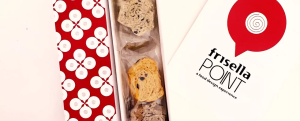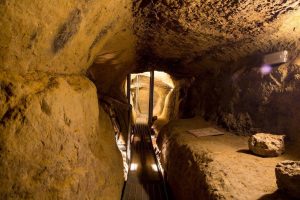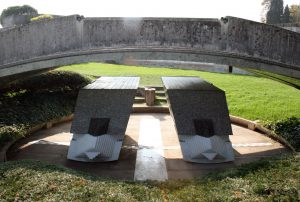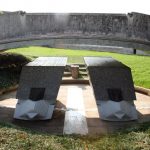In the sadness of a prison camp, during the First World War, a war in which bayonets and white weapon attacks still counted, one day, the protagonist of our story had a sudden shock. He was a very young interpreter of the German army and, among other languages, he also knew Italian. He heard that those prisoners, Italians, spoke another language which, moreover, he understood: Greek. He approached and asked why of that strangeness. And they timidly replied that they were Italians, yes, but in particular Calabrians and, better said, Greeks from Calabria, from Bovésia. Thus begins the story of Gerhard Rohlfs, one of the most brilliant linguists and dialectologists in Europe. Son of a nurseryman, passionate about plants, he had started with botany. But then the studies on languages, on their origins, on the relationship with the territory, nature and traditions took over. That young and very lively German becomes an “archaeologist of the word”, the one who would restore dignity to the calabrian greek language, a language that over the centuries had taken refuge – in order not to disappear – in those impenetrable but wildly beautiful scenarios. Even today – and it has happened to the writer – it could happen to meet, following his flock of goats, a shepherd who very naturally tells of speaking at home, with his wife, in the language of Homer. A miraculous circumstance appeared to the writer, an event of culture, life and society to be told whenever possible. Let us return to Rohlfs. Here he is, very young in Calabria. Curious, eager to dig in that mine of Greek culture that most ignored or, worse, snubbed. With Germanic grit, with a letter of introduction signed by Benedetto Croce and, above all, with “good shoes”, he tackled the climbs of the Aspromonte (sometimes on foot) to get to Bova, Gallicianò, Roghudi, Condofuri, Pentedattilo, San Lorenzo, Africo Vecchio. However, he visited 365 villages in Italy, some even resorting to the uncomfortable back of a mule. In those places, sitting at the bar with his notebook, year after year, he talked, observed and wrote down. He drank a beer, played cards. Every nuance of pronunciation was repeated by the village elders meticulously. And he cataloged customs, words, idioms, proverbs, games, names and nicknames. All this, in the course of sixty years of passionate work that led him to compose 700 writings, 15 of which dedicated only to Calabria. From the degree thesis, “Greeks and Romans in Southern Italy”, to the fundamental “Dialectal dictionary of the three Calabria”, “Dictionary of surnames and nicknames of Calabria” and “Toponymic dictionary of Calabria”. Let’s be clear: Rohlfs also studied the griko of Puglia, other dialects of France and Spain. A “volcano” that never gave up on his field activities, even after having obtained the chair in Romance Philology at the prestigious University of Tübingen. The Greek scholar Franco Mosino, who was a friend of him, recalls a criticism he addressed to his Italian colleagues, more likely to remain behind a desk than to action. But Calabria was particularly in his heart and he returned there every year. With the pen and the camera: his photos of the peasant world, which was already disappearing after World War II, are a very effective anthropology treatise. And at this point we recommend a visit to the beautiful “Gherard Rohlfs” museum in Bova, to which the director, Pasquale Faenza, devotes assiduous care. Moreover, you can enjoy views of incomparable beauty. The thesis that fascinated the scholar Rohlfs was that that language, spoken but not written, derives precisely from the first Greeks who colonized the South of Italy in the eighth century BC. Other experts, however, argued that it was a much later bequest, due to the arrival in Calabria of the Byzantines, in particular of the “Basilian” monks. Evidence of this latter presence is still very visible today in various parts of the region and even in this case it would be worth following these traces. Spirituality, tourism, nature and, why not, great food. “Talking with the peasants I was surprised by the incredible variety of Italian dialects,” Rohlfs said when he had already become an established professor. In the case of Calabria he was concerned that the calabrian greek language might disappear. He felt its growing agony. The fact is that the Latins, the Normans, all Italians, up to the Fascist regime, did not look favorably upon this segment of Greece in Italy. Thus the language remained, always spoken but not written, used by peasants and shepherds who climbed higher and higher, in Aspromonte. They were then convinced that it would have been better not to pass it on to their children because it would have penalized them. And the absurdity arose that Greek was the language … of the ignorant. The all-out cultural action of Gerhard Rohlfs and a handful of other writers, however, gave rise to a moment of rebirth that still continues with vigor: today the Greek courses of Calabria are increasingly popular. It is worth mentioning, for example, the meritorious work of Maria Olimpia Squillaci, in Bova. Thanks to her, there is even an online dictionary of the calabrian greek language, which will no longer be a commonly spoken language but will be an increasingly studied language. White hair, suspenders, tweed jacket, round-rimmed glasses, the German professor seemed the perfect continuer of the tradition of writers and artists who came to Italy for that “grand tour” started by Goethe. In addition, Rohlfs put his heart into it. He left many friends and received many awards: a foreign member of the Accademia della Crusca and the Accademia dei Lincei, he was awarded an honorary degree in Literature by the Università della Calabria. He became an honorary citizen of Bova, Candidoni, Tropea and Cosenza. But perhaps what he would like most is the commemorative plaque dedicated to him in Badolato: “The most Calabrian of the sons of Germany”. It is important today not to forget him. He would say hello as he always did. With a simple … very Calabrian “ndi vidimu”.
GERHARD ROHLFS The most Calabrian of the sons of German

Intesa vincente. A Lecce la frisella incontra il design con Frisella Point Valorizzare il cibo della tradizione attraverso l’unione delle eccellenze del territorio e del linguaggio contemporaneo dell’estetica a tavola.
A pochi passi dalla Basilica di Santa Croce e da Porta Napoli, la frisella, regina della convivialità delle tavole estive salentine, ha trovato il proprio regno. Frisella Point è un intimo spazio interno, con dehors su piazzetta Santissima Addolorata 14, che si propone al pubblico come “ristorazione culturale”, per valorizzare un prodotto semplice della tradizione […]
Continua a leggere
Il labirinto di Porsenna
*di Bianca Sestini* Oltre al suo magnifico lago, gli Etruschi sono il motivo principale della fama di Chiusi dentro e fuori dalla Toscana. Stando a fonti latine, sarebbe stato uno dei primi insediamenti di questa antica civiltà. Per alcuni la città fu fondata da Telemaco, il figlio di Ulisse, per altri dall’eroe Cluso. Da allora, […]
Continua a leggere
L’inno all’amore della Tomba Brion
*di Carlo Piano* La Tomba Brion è la storia di un amore scritta con acqua, aria e cemento armato. Quando Onorina Tomasin chiese a Carlo Scarpa di creare il mausoleo per ricordare il marito Giuseppe Brion, improvvisamente scomparso, lui accettò a una condizione: doveva avere la parola della vedova che non si sarebbe mai risposata. […]
Continua a leggere









